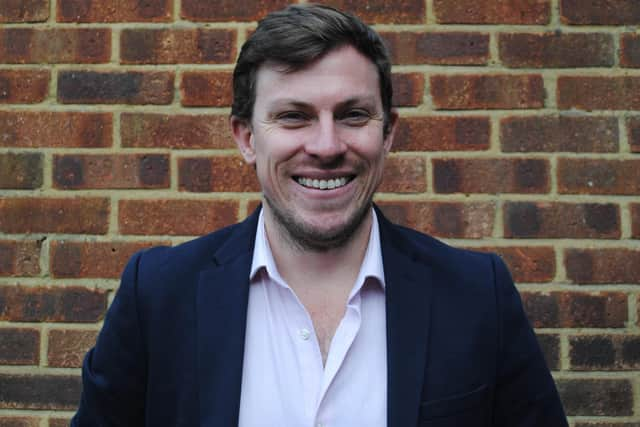Dementia diagnosis can be scary but it is essential for the right care - Richard Sloggett
Amongst those over 65, six in 10 people surveyed said they were worried about receiving the news. This is higher than for cancer and other conditions.
With projections showing that over one million people will be living with dementia in the UK by 2025, rising to 1.6million by 2040; more and more people are set to receive this difficult
news.


Advertisement
Hide AdAdvertisement
Hide AdBut for those who do have dementia; an early, accurate diagnosis, does open up access to a range of care, treatment and support.
Sadly however, many will have the condition and either wait years for the news or never receive it missing out on vital help.
In England last year 430,000 people had a formal diagnosis of dementia. However, our Future Health research estimates that three quarters of a million were living with the condition in this same period – meaning 4 in 10 people with dementia not having a diagnosis.
Before the pandemic, progress had been made in tackling under-diagnosis and the NHS was delivering the Government target of diagnosing two-thirds of those affected.
Advertisement
Hide AdAdvertisement
Hide AdThe impact of COVID-19 restrictions on access to services, deteriorations in people’s health and wellbeing and wider backlogs of care has seen achievement against this target rate fall
back sharply in the last two years.
Our research, commissioned by Roche Products Ltd, found a widespread postcode lottery for people in receiving a diagnosis. In some areas over 80 per cent of people have been
diagnosed; but in other areas this falls to less than 50 per cent.
This variation is replicated across the North-East and Yorkshire where nearly 50,000 people are currently undiagnosed. Only the South-East and the Midlands regions have higher
numbers.
Advertisement
Hide AdAdvertisement
Hide AdWithin the region itself there are widespread disparities. In Hull nearly three quarters of people with dementia are diagnosed, but in Vale of York the number is less than half, and
only just climbs above 50% in North Yorkshire, Kirklees and Calderdale.
There are clear health inequalities in accessing a timely diagnosis. People in rural areas and those from ethnic minorities face particular barriers and hurdles to access the services they
need.
An analysis of the worst performing areas for dementia diagnosis rates found that over 80 per cent had higher than average rural populations.
Advertisement
Hide AdAdvertisement
Hide AdPeople in rural areas face a number of obvious challenges in accessing high quality healthcare, including longer travel times to facilities, a sparsity of transport links and limited
digital access and connectivity.
For Government and the NHS now is the time for urgent action to address such differences in performance and a ten-year dementia strategy is planned for publication later this year.
To succeed it will need to learn from past efforts. Progress was made in the recent past through setting clear targets along with investment in the staff and equipment needed to
deliver it.
With diagnostic innovation opening up new ways, for example through blood tests to diagnose dementia, quick progress in recovering diagnosis rates and delivering better
performance is possible.
Advertisement
Hide AdAdvertisement
Hide AdAlongside improving overall diagnosis rates is the need for more accurate and specific diagnoses.
With a new generation of personalised treatments for dementia emerging, the importance of being able to sub-type diagnoses is going to become ever more critical to
delivering high quality effective treatment and care.
As the NHS restructures itself on the basis of more integrated care after the pandemic, dementia should be seen as an exemplar of such integration and be a priority for new
system planning.
Higher diagnosis rates will only translate into better patient outcomes if they lead to care and support that is properly co-ordinated around the individual.
Advertisement
Hide AdAdvertisement
Hide AdFinally, Government should be looking at how to better engage the public on this issue.
The Government’s new Office for Health Improvement and Disparities should launch a new public awareness campaign on the importance of brain health; helping people to spot the
signs and symptoms of dementia earlier.
Dementia is both one of the most important and yet least understood conditions our healthcare system and population faces. With cases set to rise, getting access to a diagnosis should not be based on where you live, how far away a health centre is and how easy it is to access the system.
Raising public awareness, investing in new diagnostics and building care around the needs of individuals can get people with dementia the diagnosis, care and support they deserve.
- Richard Sloggett, Founder of Future Health and a former special advisor in the Department of Health and Social Care.